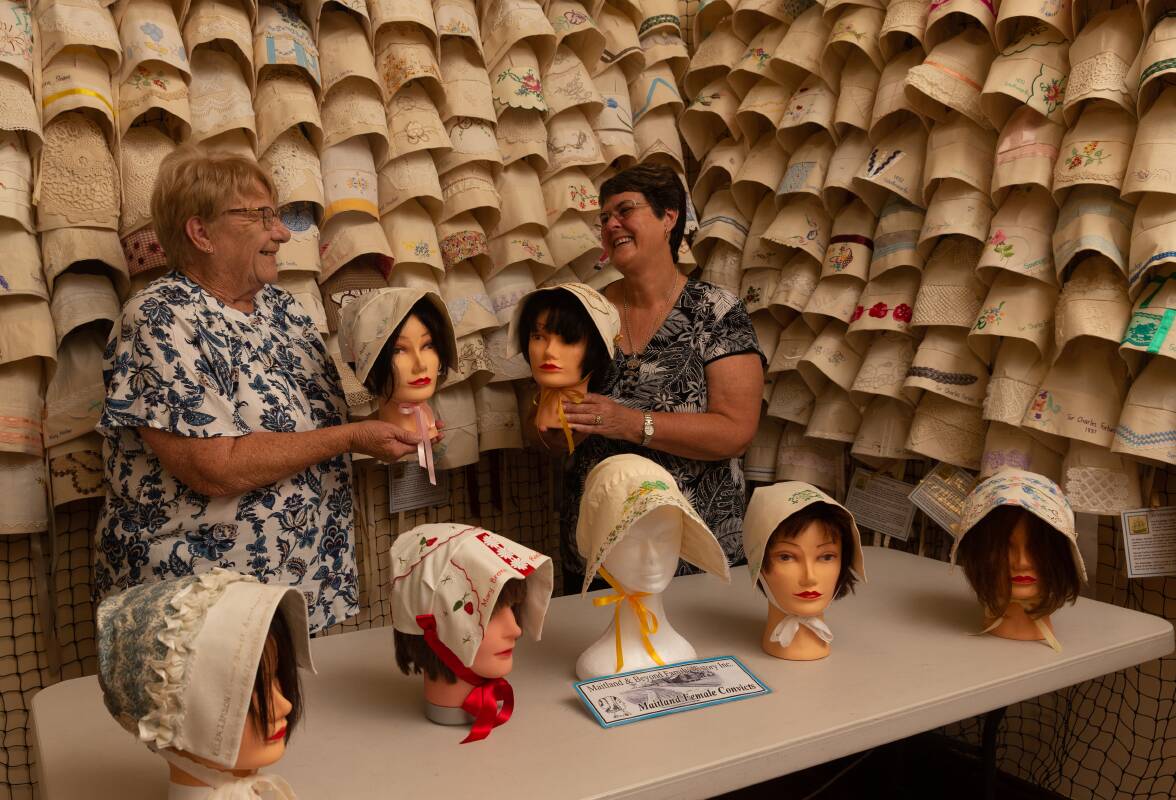
ORDINARY women were torn from their families.
Crimes of survival saw female convicts shipped to Australia in a harrowing six-month journey across the sea, exiled to a new colony and often sold off for cheap.
Some succeeded, some didn't. Others went down swinging.
At least 1000 of them landed in Maitland and the Hunter - their stories largely washed from the pages of history, murky as the waters of the tubs they slaved over - until now.
"They were good at disappearing too, they would change their names completely," Maitland and Beyond Family History convict bonnet coordinator Vicki Osborn said.
"Back in that early time, women, no matter what class they were in, they went mostly by their husbands' name so they tended to be forgotten."
Exactly 1033 bonnets have been carefully sewn and embroidered, each marked with the name of a local convict's name, the ship she arrived on and the year she arrived in the NSW colony.
What started as a smaller project for Maitland's bicentenary has grown into something much bigger, more emotional.
Each woman is tied to Maitland and the Hunter Valley's pioneer history; they came to blows to take what they wanted, used their lascivious potential to their advantage and did what they had to to survive.
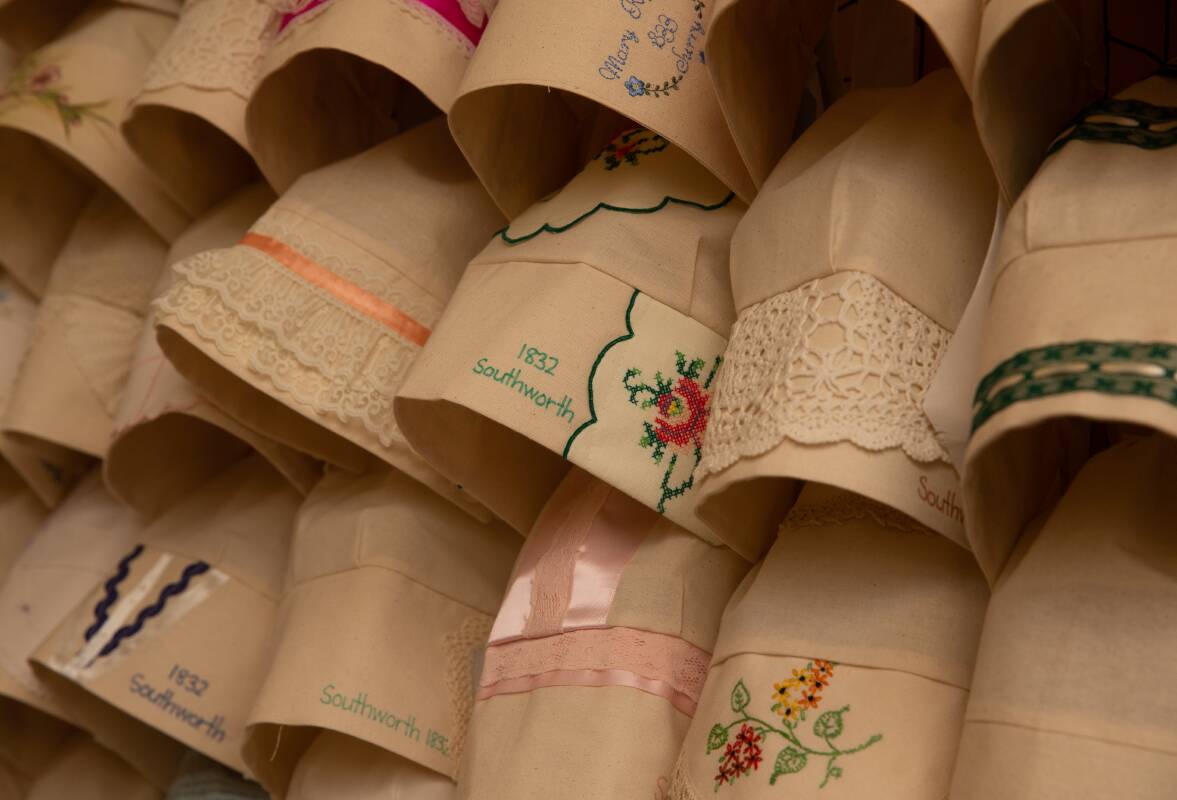
Their stories read like something from a Quentin Tarantino film. Maitland and Beyond Family History are doing the detective work to bring them to life.
"From my research, for about 90 per cent of the women it was just larceny, pure theft and most of that was just for survival - food, clothing, cheese, anything they could get that they could sell on for money because it was a pretty poor time back in those days," Ms Osborn said.
"You had the Industrial Revolution, which meant all those cottage industries and labouring on the farms, all those jobs were lost because the machines had taken over.
"People migrated into London and the bigger areas, they became over-crowded so there were no jobs, no food, no places to live and crime took over."
Between 1788 and 1868, about 25,000 convict women were sent to Australia by boat.
Those who survived the dank, impoverished conditions on board were sent to the mainland or Tasmania - sentenced to seven to 10 years of hard labour.
Convict men outnumbered women nine to one, the British government targeting women as 'tamers and breeders' - critical to its plan to start a viable colony.
Once their time was served, very few made it back home - but it wasn't for lack of trying.
The infamous Molly Morgan was brought to Australia on The Neptune, known as the 'hell ship' - where most prisoners were locked in irons for the entire journey and nearly one in three died.
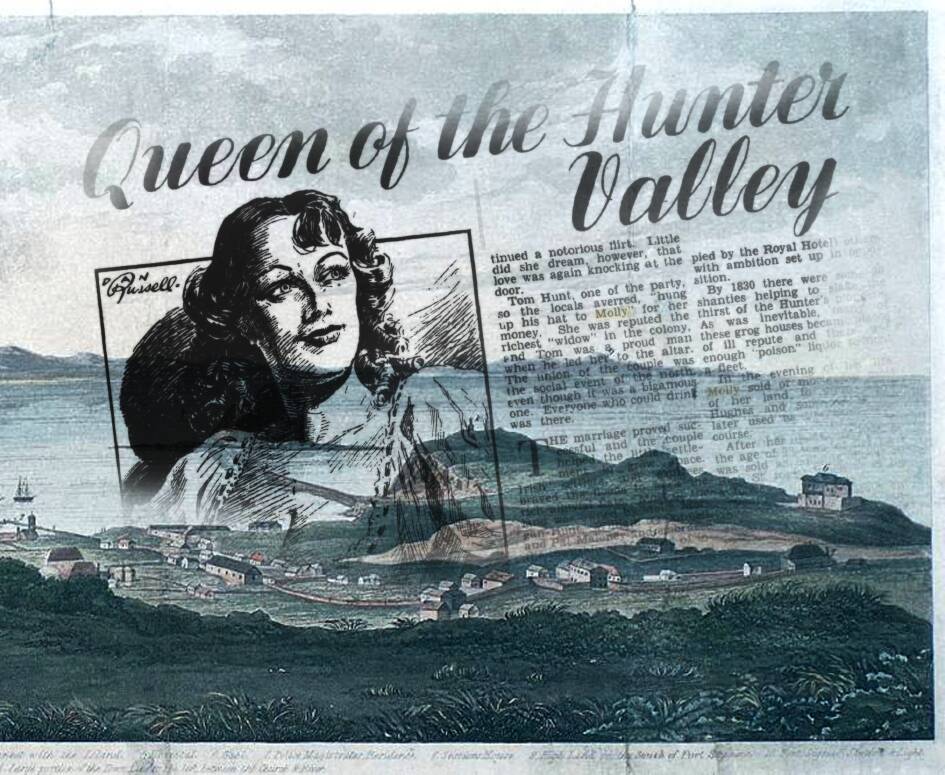
"Molly had a way with men, shall we say, she managed to meet up with the captain of a ship and he hid her until he got out to sea to take her home," Ms Osborn said.
"He wanted to marry her and take her back to America, but she wanted to go back home.
"Unfortunately, she got caught again for stealing and got sent back out, when she got back out here she was accused of stealing the government's cattle so she was sent from Newcastle up here."
Morgan was one of the first female convicts along the Hunter River to receive land, and she was good at what she did.
As the story goes, her business-savvy saw her set up a 'wine shanty' at Molly Morgan's bend, earning herself a dime welcoming "weary waterborne" travellers.
Some of them made their own way, others were given a leg-up - like 'late servant of the devil, nuisance and terror' Mary Fitzgerald, known around Maitland and in newspaper headlines as 'Poll Cott'.
She became a bit of a laughing stock, Maitland and Beyond Family History researcher Chris Barrett said.
"She had a young child with her husband James but the child died, someone got in her ear and said the doctor didn't do his job properly - so, she destroyed the doctor's surgery, bashed up the doctor and ended up in jail," she said.
"She used to lie on the grave at night time and put a thin rod down onto his coffin, tap his coffin, I think it was just grief, absolute, unadulterated grief."
By 1880, Poll had spent the greater part of the last 20 years in jail, according to newspaper articles. It wasn't until a fortuitous meeting that things turned around.
Kicked off a train headed to Newcastle because she was caught in the first-class carriage without a ticket, Poll wanted retribution against the man that booted her.
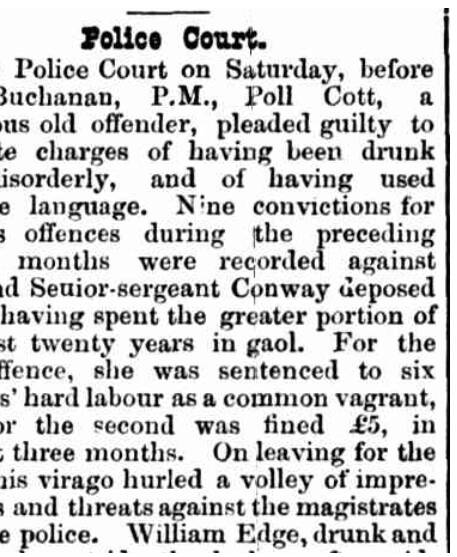
She went into a shop to steal some scissors, when she heard someone behind her greet her kindly, Ms Barrett said.
"She turned around and it was a Salvation Army officer who invited her to have afternoon tea with his wife, so she toddled off thinking she could get up in the middle of the night and ransack the place, but when she woke up they were praying for her," she said.
"She'd never, ever had anything like that, so she became a Salvationist."
Unearthing the women's stories has been a significant undertaking, in the past having convict ancestry was considered a blight on the family tree.
Come Maitland's bicentenary last year, modern locals had decided it was pretty cool to have a convict in their lineage.
"People wanted to know if they had a convict in their tree and we took a liking to the female convicts because their stories weren't being told," Ms Osborn said.
"We felt it was important to tell, and the more we put information out about our research, the more people came out and wanted to make a bonnet or tell us their story."
And the stories are as colourful as the lives the women lived, some wildly ferocious, others haunting and uplifting - like that of convict Rachael Atkinson, who safely delivered triplets under a tarpaulin at Brooke's Flat after nearly drowning a child in England saw her exiled to Australia.
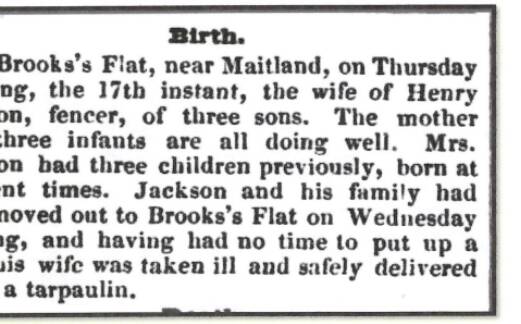
She'd gone two or three days without food, rather than let the baby die of starvation she threw it into a river - luckily someone came and rescued it, and she was sent to the colony with her child. Sadly the baby died not long after she arrived.
Ms Osborn said when her and her husband came out to Buchanan, she was extremely pregnant with triplets.
"She gave birth to them in the middle of the night in July, out in the open underneath a tarpaulin and they all lived, they all lived to be grown children," she said.
"She ended up having 13 children, so she became a great mum."
The project is part of Dr Christina Henri's 'Roses from the Heart' initiative.
The group will run a seminar on March 5 at Maitland Gaol, sharing stories of convict transportation, the Maitland women and their bonnet project.
Cost is $50 including lunch and refreshments, with $10 for an optional gaol tour. To register contact Allan Murphy at mbfhprojects@tpg.com.au.
To see more stories and read today's paper download the Newcastle Herald's upgraded news app here.







